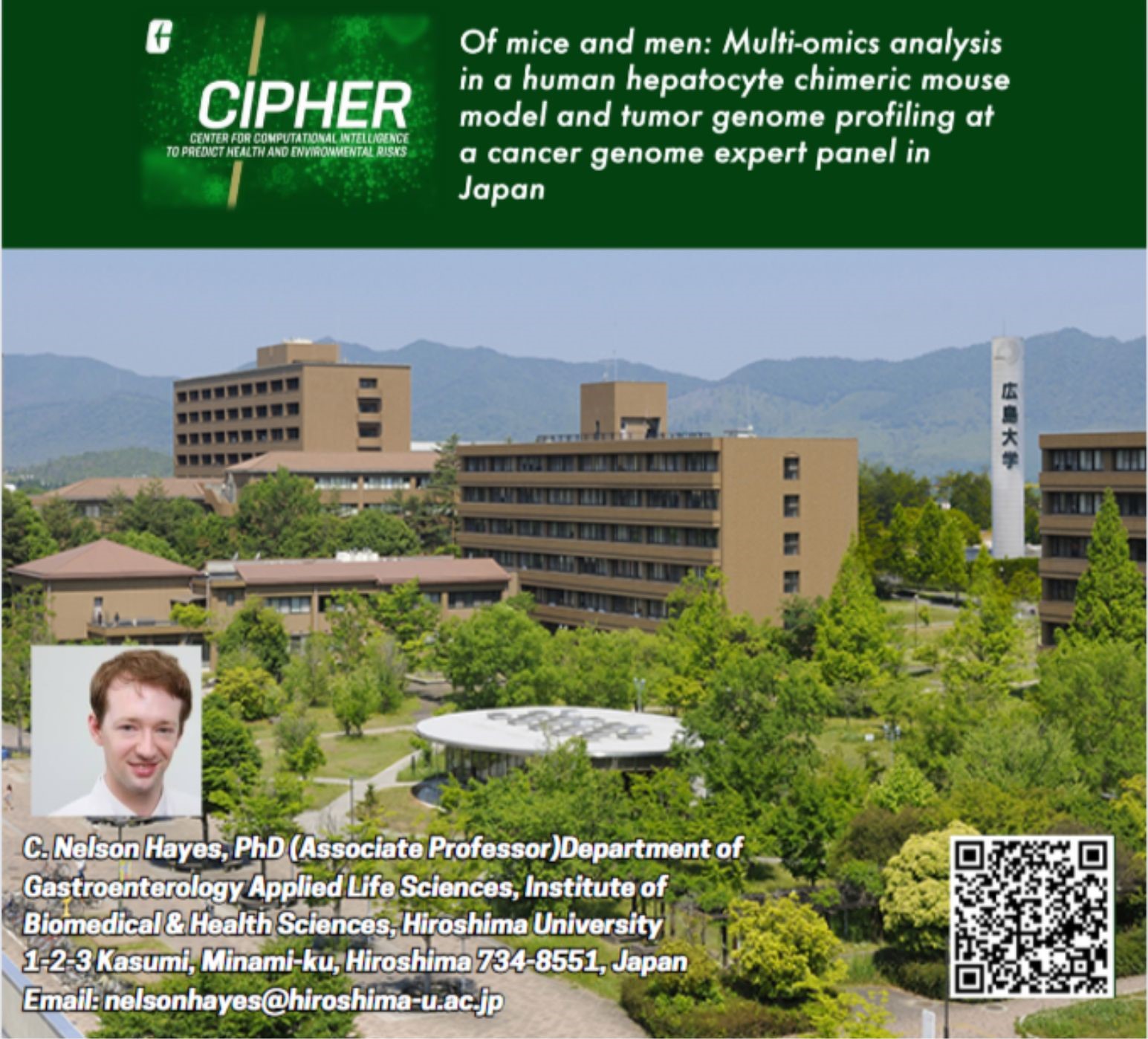Of mice and men; Multi-omics analysis in a human hepatocyte chimeric mouse model and tumor genome profiling at a cancer genome expert panel in Japan
Of mice and men
On June 13, 2024, we will have the honor of meeting our special guest Dr Hayes. In CIPHER seminar room (BINF 408), from 2:30 to 3:30 PM.

About
In this talk, I will briefly explain how I took a chance on merging my backgrounds in biology, computer programming, and statistics into a new career in bioinformatics in Japan. After building an antigenic variation database in Kyoto, I moved to Hiroshima to study viral hepatitis and cancer genome analysis. I will discuss how we have successfully used uPA/SCID mice with transplanted human hepatocytes to investigate the life cycle of hepatitis B and C viruses and monitor the emergence of resistance-associated variants.
We recently extended this mouse model to examine the effects of a high-fat diet and growth hormone supplementation on fatty liver using simultaneous analysis of transcriptomics, proteomics, and metabolomics data. However, my most important role at the university hospital is to lead the bioinformatics analysis and reannotation of cancer genome profiling reports to help match advanced cancer patients with targeted therapies and evaluate eligibility for clinical trials. Here we are limited not only by an increasing caseload but by the limited and proprietary nature of the genome profiling data we receive from commercial services.
Meet our special guest
I am a bioinformatician and Java programmer using a data science approach to investigate viral hepatitis and liver diseases. I use a supercomputer to analyze next-generation sequencing data and analyze experimental data using statistics and machine learning.
I also develop relational and NoSQL database approaches for data management and build web applications using Java and Angular. Recently I have begun to focus on deep learning and graph analytics to identify host factors implicated in hepatitis B and C infection. In 2003, I received a PhD in biology from the Pennsylvania State University, where I studied evolutionary ecology of mating systems. In 2005, I became a postdoctoral fellow in the Kanehisa Laboratory in the Bioinformatics Center at Kyoto University, where I developed the varDB antigenic variation database to examine mechanisms of immune escape in Plasmodium falciparum and other human pathogens.
Previous post
What is the Summer of 2024 in the Phyloinformatics Lab looking like?
Next post
The Phyloinfomratics Lab at the 20th X-Meeting
